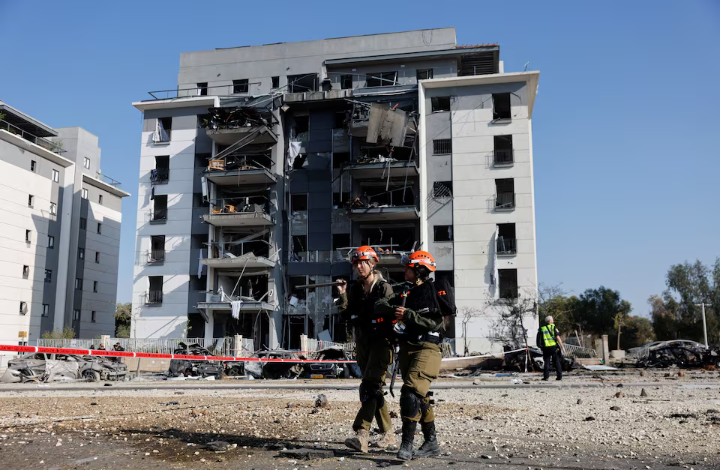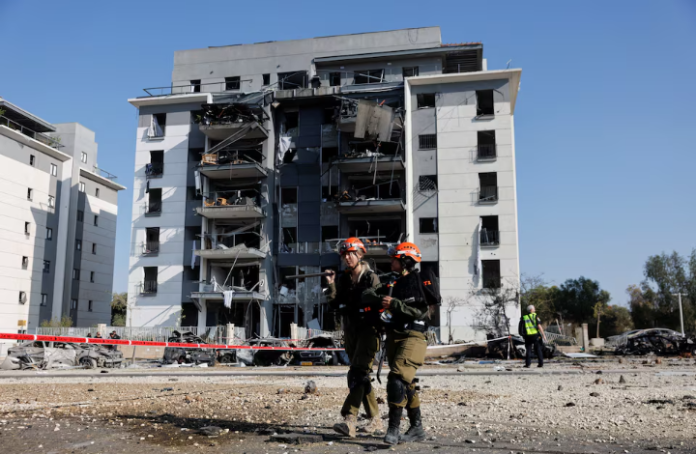As missiles fly and cities brace for impact, Iran has firmly shut the door on nuclear negotiations — at least for now.
On Friday, Iranian officials declared they would not engage in any nuclear talks while Israeli attacks continue, dashing hopes of a diplomatic breakthrough even as European powers and the U.S. push to defuse the crisis. The statement follows an intense week of escalating violence that has left dozens dead and raised fears of a broader regional conflict.
Israel Hits Key Military Targets, Iran Responds
Israel claims to have struck dozens of high-value military targets in Iran, including missile factories, nuclear research centers, and command facilities in the heart of Tehran and other regions. In retaliation, Iran launched missile and drone attacks on Israel, hitting cities like Beersheba, Tel Aviv, Haifa, and the Negev. The Iranian military says these were long-range, ultra-heavy strikes aimed at Israeli defense infrastructure.
According to the Israeli military, roughly 20 missiles were fired in the latest wave, injuring at least two civilians. Meanwhile, Iranian news agency Fars confirmed the use of powerful new weapons in these retaliatory strikes.
Casualties and Civilian Toll Rising
The human cost is mounting. A U.S.-based human rights organization reports that Israeli airstrikes have killed 639 people in Iran, including top military personnel and nuclear scientists. Iran’s missile attacks have killed 24 civilians in Israel, according to local officials.
Although Israel has bombed Iranian nuclear sites, experts say the risk of radiation is minimal — so far. But they warn that an attack on Iran’s Bushehr nuclear power plant could result in a major catastrophe.
Tensions Mount Over Global Energy Concerns
Qatar, concerned about possible attacks on Gulf energy infrastructure, has held emergency meetings with top energy companies. Insiders say Doha is urging them to pressure Western governments about the potential global impact on gas supplies. QatarEnergy has yet to comment publicly.
Diplomacy Struggles as Geneva Talks Stall
Despite the chaos, Iranian Foreign Minister Abbas Araqchi arrived in Geneva for discussions with European officials from France, the U.K., Germany, and the EU. The goal? Revive diplomatic channels — though expectations are low. Araqchi insists no progress can be made while “Israeli aggression continues.”
He also accused Israel of war crimes in a fiery speech to the U.N. Human Rights Council, claiming their attacks derailed a promising deal scheduled for June 15 with U.S. officials.

The U.S., under President Donald Trump, remains undecided about joining the conflict but has signaled it will decide within two weeks. Trump’s special envoy, Steve Witkoff, has held backchannel talks with Iran, but momentum has slowed since Israel’s strikes began on June 12.
A Bigger Strategy at Play?
Some Western and Middle Eastern officials suggest Israel’s real aim isn’t just to neutralize Iran’s nuclear program, but to destabilize Supreme Leader Ayatollah Khamenei’s regime. Israeli officials reportedly ordered strikes on symbolic government targets in Tehran, hoping to shake the foundations of Iranian leadership.
Iran’s opposition groups see a potential turning point but remain cautious. Widespread protests are unlikely, as most activists are wary of sparking unrest during wartime. Still, state media have reported mass rallies in several Iranian cities, framing them as demonstrations of “rage, victory, solidarity, and resistance.”
As tensions rise, one thing is clear: the path to diplomacy will be long and uncertain — especially while bombs are still falling.



